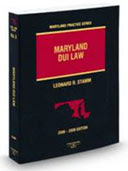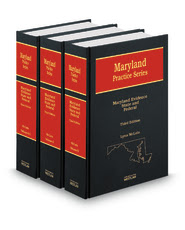The Supreme Court today granted certiorari in three cases Birchfield v. North Dakota (14-1468); Bernard v. Minnesota (14-1470); and Beylund v. North Dakota (14-1506). These cases raise the question left open after the Court’s decision in Missouri v. McNeely, 133 S.Ct. 1552 (2013): can a state make the refusal to submit to a breath or blood test for alcohol a crime, punishable by imprisonment?
Police are presumptively required to obtain a warrant before obtaining a blood test for alcohol. Missouri v. McNeely, 133 S.Ct. 1552 (2013). The Supreme Court will now decide whether a warrant is required for a breath test, whether the refusal to consent to a breath or blood test can be made a crime, and whether advice that refusal is a crime carrying a possible jail sentence renders any consent to submit to a breath or blood test coerced and involuntary. However, relevant authority and review of Supreme Court cases compels an answer of yes – a warrant is required for a breath test, no – a refusal to consent to a breath test cannot be made illegal without violating the Fourth Amendment, and yes, advising a suspect that refusal is a crime punishable by imprisonment renders any consent given coerced and involuntary.
Warrantless searches are presumptively unreasonable. Katz v. United States, 389 U.S. 347, 357, 88 S.Ct. 507, 19 L.Ed.2d 576 (1967). Where there is a warrantless search, the government has the burden of proving the legality of the search, that it was conducted pursuant to a recognized exception to the warrant requirement, such as exigent circumstances, consent, and search incident to an arrest. In United States v. Reid, 929 F.2d 990 (4th Cir. 1991), the Fourth Circuit held that a warrant was not required to conduct a breath test during a DUI investigation because a breath test was a permissible search incident to an arrest and was conducted under exigent circumstances. However, Reid was overruled by McNeely, to the extent that it relied on exigent circumstances. United States v. Brooks, No. CRIM. PWG-14-0053, 2014 WL 2042028, at *5 (D. Md. May 16, 2014). The search incident rationale of Reid is also no longer valid due to the Supreme Court decisions in Arizona v. Gant, 129 S.Ct. 1710 (2009) and Riley v. California, 134 S.Ct. 2473 (2014). The final possible applicable exception to the warrant requirement is consent. However, where, the “consent” is obtained by a threat of incarceration, the consent is coerced and is not voluntary. State v. Won, 2015 WL 7574360, — P.3d — (Haw. 2015).
If you are facing criminal or traffic charges in Maryland state or federal court, call Leonard R. Stamm of Goldstein & Stamm, P.A. at 301-345-0122 for a free consultation.
Leonard R. Stamm
Goldstein & Stamm, P.A.
6301 Ivy Lane, Suite 504
Greenbelt, MD 20770
301-345-0122
(fax) 301-441-4652
www.dwiattorneymaryland.com
www.marylandduilawyer-blog.com

Author: 2015 update to Maryland Evidence: State and Federal by Professor Lynn McLain (coming this fall)
“Patience, Perseverance, Persuasion”

